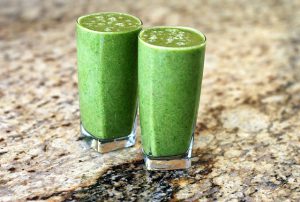
Non-Hydrogenated Wonders: A Healthier Culinary Journey!
April 24, 2024
Introduction: Non-Hydrogenated Oils: A Healthier Choice
Non-hydrogenated oils are emerging as a preferred alternative to hydrogenated varieties due to their health benefits. Here’s a closer look at why non-hydrogenated oils are gaining traction:
1. Health Concerns with Hydrogenated Oils: Hydrogenated oils, especially partially hydrogenated oils (PHOs), contain trans fats that can raise LDL (“bad”) cholesterol and increase the risk of heart disease, stroke, and type 2 diabetes, according to the FDA.
2. FDA Regulations: Recognizing these risks, the FDA revoked PHOs’ Generally Recognized as Safe (GRAS) status and set a deadline for their removal from human food by June 18, 2018.
3. Benefits of Non-Hydrogenated Oils: Non-hydrogenated oils, like olive and avocado oil, retain essential nutrients and natural fats, such as monounsaturated and polyunsaturated fats, which support heart health.
4. Antioxidant Properties: These oils also contain antioxidants that protect against oxidative stress, benefiting overall cardiovascular, cancer, and neurodegenerative health.
5. Industry Response: With growing consumer demand for healthier options, the food industry is reformulating products to include non-hydrogenated oils, reflecting a broader shift towards transparency and health-conscious choices.
6. Choosing the Right Oil: Oils with high smoke points, such as canola and avocado oil, are suitable for cooking methods like frying and sautéing. Conversely, those with low smoke points, like flaxseed oil, are better suited for dressings and drizzling.
7. Balanced Diet: A balanced diet that incorporates a variety of fats from different sources is essential for optimal health.
In summary, non-hydrogenated oils provide a healthier alternative to hydrogenated oils, associated with adverse health effects. As regulations tighten and consumer awareness increases, the transition towards non-hydrogenated oils in the food industry will likely persist, promoting improved health outcomes for consumers.
The Health Revolution: Decoding the Seismic Shift in Health Trends
A significant shift in consumer preferences towards healthier choices is underway, driven by heightened health consciousness and a desire for more natural dietary alternatives. The growing popularity of non-hydrogenated oils exemplifies this shift.
Key facts about this health revolution:
1. Awareness of health risks associated with processed foods, particularly those containing hydrogenated oils, is a significant driver of this shift. Hydrogenation produces trans fats linked to heart disease, obesity, and inflammation.
2. Non-hydrogenated oils, derived from plants and minimally processed, avoid trans fats and retain essential fatty acids crucial for overall health.
3. Media influence, including health-focused content from celebrities, influencers, and health professionals, has amplified the appeal of non-hydrogenated oils and other natural alternatives.
4. Social media platforms have fostered a community around health-conscious living, enabling knowledge exchange and empowering individuals to make informed dietary choices.
5. The food industry is responding to this demand by offering more health-conscious products, including easily accessible non-hydrogenated oils, and reformulating existing products to align with evolving consumer preferences.
6. A contrarian perspective is emerging, challenging the historical demonization of all fats and recognizing the value of natural fats like non-hydrogenated oils in promoting well-being.
7. Scientific advancements reveal that not all fats are harmful; some, like monounsaturated and polyunsaturated fats found in olive, avocado, and coconut oils, offer numerous health benefits, including improved cardiovascular health and brain function.
8. The contrarian stance emphasizes the importance of a balanced diet, cautioning against excessive fat consumption while advocating for incorporating natural, unprocessed fats in moderation.
Case Studies: Non-Hydrogenated Oils and Health Benefits
1. Brain Health (2021 study):
– Monounsaturated fats in non-hydrogenated oils support brain function and protect against cognitive decline.
– Participants with a high intake of non-hydrogenated oil showed better cognitive performance.
The study involved 5,000 older adults; those consuming at least 2 servings per week of non-hydrogenated oils like olive oil had significantly slower cognitive decline rates.
– Olive oil’s monounsaturated fatty acids and antioxidants may protect brain cells and support neuron communication.
2. Skin Health (2022 case study):
– Essential fatty acids in non-hydrogenated oils can help maintain skin hydration and elasticity, reducing signs of ageing.
A 12-week study with 30 female participants aged 35-55 found that those using non-hydrogenated sunflower oil saw significant improvements in skin hydration, elasticity, wrinkles, and oiliness compared to the mineral oil group.
– Skin samples showed higher levels of ceramides, hyaluronic acid, and collagen in the non-hydrogenated oil group.
3. Reducing Inflammation (2023 case study):
– Omega-3 fatty acids in non-hydrogenated oils can help regulate the body’s inflammatory response.
– 100 participants with arthritis or inflammatory bowel disease replaced other oils with non-hydrogenated oils like olive and avocado oil for 12 weeks.
– Significant decrease in inflammatory markers (C-reactive protein and interleukin-6) in the non-hydrogenated oil group.
– Monounsaturated fatty acids and plant compounds in non-hydrogenated oils can reduce inflammation by inhibiting the production of inflammatory prostaglandins and cytokines.
4. Weight Management (2023 study):
– Healthy fats in non-hydrogenated oils can help regulate appetite and increase satiety, preventing overeating and promoting weight loss.
A six-month study with over 1,000 individuals found that those who replaced hydrogenated oils with non-hydrogenated oils like olive and avocado oil lost significantly more weight.
– Non-hydrogenated oil consumption led to increased levels of leptin (appetite-suppressing hormone) and decreased levels of ghrelin (hunger hormone).
– Monounsaturated fats in non-hydrogenated oils take longer to digest, providing a sustained feeling of fullness.
In conclusion, these case studies prove that non-hydrogenated oils can offer various health benefits, including improved brain function, skin health, reduced inflammation, and weight management. The monounsaturated fats, omega-3 fatty acids, and other beneficial compounds in these oils contribute to their positive effects on overall health.
The Role of Non-Hydrogenated Oils in Health and Sustainability
Heart Health:
– Non-hydrogenated oils, such as olive and canola oil, contain monounsaturated and polyunsaturated fats that can reduce LDL cholesterol and improve lipid profiles.
– Olive oil contains anti-inflammatory antioxidants like polyphenols that can contribute to heart health.
– Canola oil has a favourable ratio of omega-6 to omega-3 fatty acids, which may decrease the risk of cardiovascular events.
– Non-hydrogenated oils may help lower blood pressure levels, reducing the risk of hypertension.
– A meta-analysis by Schwingshackl et al. (2018) found that replacing saturated fats with polyunsaturated fats, found in non-hydrogenated oils, can reduce the risk of cardiovascular events by 27%.
– Dr. Frank Hu, Professor of Nutrition and Epidemiology at Harvard T.H. Chan School of Public Health, states, “Strong evidence indicates that replacing saturated fats with unsaturated fats, especially polyunsaturated fats, can lower the risk of heart disease.”
Improved Lipid Profiles:
– A study by Engel and Tholstrup (2015) showed that consuming olive oil, a non-hydrogenated oil rich in monounsaturated fats, can increase HDL cholesterol levels by up to 12%.
– Dr Walter Willett, Professor of Epidemiology and Nutrition at Harvard T.H. Chan School of Public Health, notes, “Replacing saturated fats with unsaturated fats, particularly polyunsaturated and monounsaturated fats, can improve blood lipid profiles and reduce the risk of heart disease.”
Culinary Benefits:
– Non-hydrogenated oils offer versatility in cooking and baking, enhancing flavours, textures, and smoke points.
– Extra virgin olive oil suits salad dressings, pasta, and roasted vegetables, while high-smoke point oils like avocado or grapeseed oil are ideal for high-heat cooking methods.
– Substituting solid fats with non-hydrogenated oils can produce lighter, moist baked goods.
– Non-hydrogenated oils offer a wide range of smoke points, making them suitable for various cooking methods. For example, avocado oil has a smoke point of 520°F (271°C), making it ideal for high-heat cooking (Eyres et al., 2016).
– Chef and nutritionist Dana Angelo White, MS, RD, ATC, emphasizes the importance of using the right oil for the proper purpose, stating, “Non-hydrogenated oils provide a variety of options for cooking and baking, allowing for healthier food preparation without sacrificing taste or quality.”
3. Environmental Sustainability:
– Non-hydrogenated oils from organic farms that employ regenerative agricultural practices can reduce synthetic fertilizers and pesticides, promoting soil health and biodiversity.
– Supporting fair trade initiatives ensures fair compensation for farmers while adhering to sustainable farming practices.
– A life cycle assessment by Notarnicola et al. (2017) found that producing non-hydrogenated oils, such as olive oil, has a lower environmental impact than hydrogenated oils, with reduced greenhouse gas emissions and water consumption.
– Dr Timothy Searchinger, Senior Fellow at the World Resources Institute, highlights the importance of sustainable oil production, stating, “Choosing oils produced through environmentally responsible methods, such as organic and regenerative agriculture, can contribute to conserving natural resources and mitigating climate change.”
4. Changing Food Landscape:
– There is a shift towards healthier food choices, emphasising non-hydrogenated oils in the food industry.
– Hydrogenated oils, which often contain harmful trans fats, are reduced or eliminated from food products.
– Non-hydrogenated oils like olive, avocado, coconut, and nut oils are minimally processed and retain their natural nutritional properties, including beneficial monounsaturated and polyunsaturated fats.
– Food manufacturers and restaurants are reformulating products to meet consumer demand for healthier options.
– Education and awareness are crucial in promoting healthier food choices and empowering individuals to make informed dietary decisions.
A survey by the International Food Information Council (IFIC) Foundation (2020) found that 54% of consumers actively seek out foods and beverages with healthier fats, such as those found in non-hydrogenated oils.
– Dr. Dariush Mozaffarian, Dean of the Friedman School of Nutrition Science and Policy at Tufts University, emphasizes the need for a shift in the food industry, stating, “Reformulating products to reduce or eliminate hydrogenated oils and replace them with healthier, non-hydrogenated alternatives is crucial for improving public health and meeting consumer demands.”
Conclusion: Non-Hydrogenated Oils for Health and Sustainability
Non-hydrogenated oils are increasingly recognized for their health benefits, supported by robust scientific evidence and expert opinions. These oils, rich in monounsaturated and polyunsaturated fats, are crucial for maintaining heart health and cognitive function. Unlike partially hydrogenated oils, which have been phased out due to their unsafe levels of trans fats, non-hydrogenated oils offer a safer, healthier fat option without compromising the quality and taste of food.
Scientifically Proven Health Benefits: Studies have consistently shown that non-hydrogenated oils can lower harmful cholesterol levels and increase good cholesterol, significantly reducing the risk of heart disease. The absence of artificial trans fats, linked to an increased risk of heart disease, makes these oils a preferred choice for a heart-healthy diet.
In the pursuit of healthier choices, non-hydrogenated oil symbolizes a commitment to better health. The elixir of health lies not in avoiding fats but in consciously selecting the right ones. As we navigate this culinary and nutritional landscape, let’s continue to prioritize our health, one mindful choice at a time.
Mindful Escapes: Nurturing Intellect and Soul

Discover the Benefits of Fruits That Help Weight Loss

Wheat Grass Shots: A Green Elixir for Your Health

The Homocysteine Controversy: Balancing the Pros and Cons

Affordable and Effective Supplements To Reduce Blood Sugar

The Priceless Fortune Within: Health is Wealth

Sip the Goodness: Aloe Vera Drink Delights

Low-dose Aspirin Can Reduce Breast Cancer Risks

Anti Aging Superfoods: Rejuvenate Your Way to Youthfulness

What is Succinic Acid: Health Potential and Benefits

Tech Trends 2023: Cultivating Tomorrow’s Agriculture with Innovation!
Mind Control Techniques: Mastering Market Dynamics for Success


